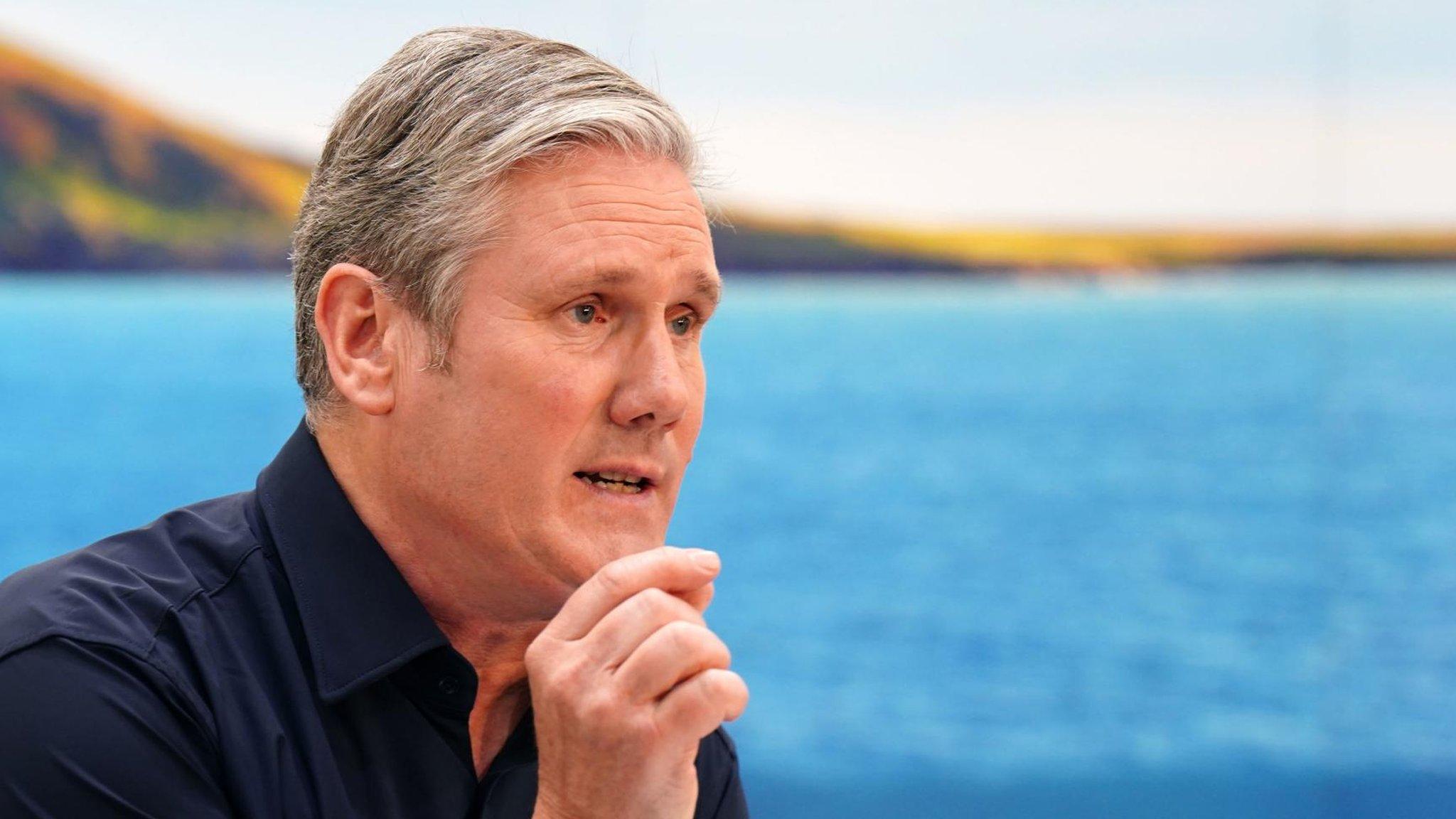Who pays if oil and gas are put into decline?
- Published
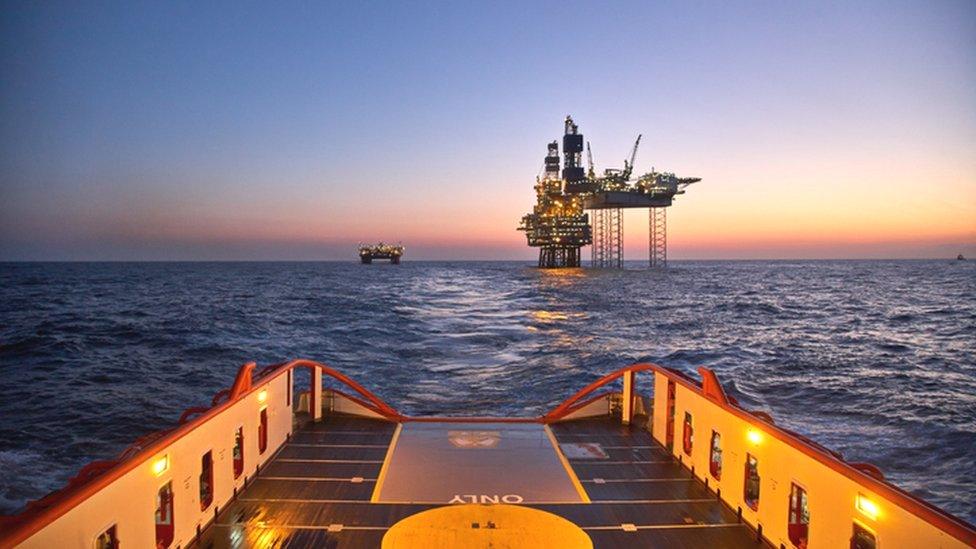
An important week for the oil and gas industry has highlighted the dilemmas of choosing to choke off supply without simultaneously cutting demand.
One major oil firm pulled out of a billion-dollar North Sea project, citing the windfall tax, political friction, investor caution and ageing infrastructure. Meanwhile an Italian energy giant ploughed investment into UK waters.
Turning to more reliance on imported energy has been shown to be risky by Russia's aggression in Ukraine, and volatile global prices leave those on lowest income with most vulnerability.
It didn't take long for the oil and gas industry to show the impact of the UK's political jeopardy.
Sir Keir Starmer was in Edinburgh at the start of the week, choosing the symbolism of Leith as a supply centre for offshore wind power and the Scottish capital as a centre for financing the Great Energy Transition.
Scotland was more than just symbolic as the location. The policy of refusing any new licences for offshore oil and gas drilling is politically difficult. There are 90,000 Scottish jobs in the industry - fewer than the rest of the UK, but more concentrated in the north-east. Making the case for shutting down the industry is tricky.
Sir Keir Starmer's approach was to tell those workers the change is coming anyway, so it's best to do it soon.
"This has to happen eventually," he said. "The only question is when. The moment for decisive action is now. If we wait until North Sea oil and gas runs out, the opportunities this change can bring will pass us by, and that would be a historic mistake."
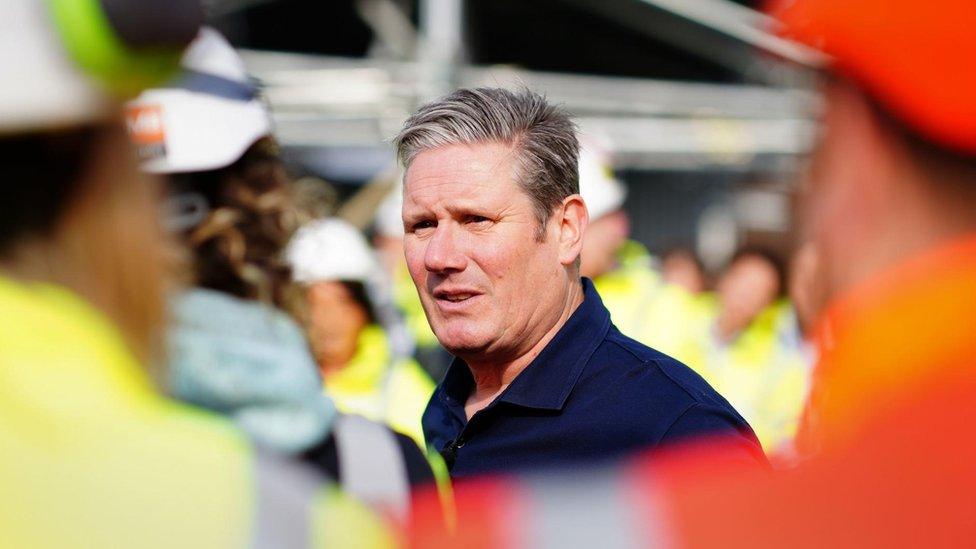
Sir Keir Starmer says he wants to make Britain a clean energy superpower
Within hours, the impact of windfall tax and licence blocks was clear from a statement issued by Parkmead. The oil and gas driller, with a focus on the North Sea, was putting the brakes on a large development to the north-east of Fraserburgh.
It faces "unprecedented challenges associated with volatile oil and gas prices, ageing infrastructure and rising capital and operating costs", it said.
Labour Party hostility to new drilling is just one of many such problems.
Parkmead also highlighted the UK government's windfall tax (from which Labour intends to extract more revenue) plus "loss of key equipment and human resources from the UK North Sea" and the cost of capital due to rising interest rates.
Facing "very high hurdles", its board is opting to "be very careful and selective in its forward UK investment strategy", so it is focussing on gas rather than oil, and only where they can be developed rapidly, alongside renewable energy assets.
So the Perth field, with costs rising to $1bn (£790m) is kyboshed. It would have required deployment of some "ultra late-life" assets nearby - meaning pipelines and platforms that are nearing the end of their working lives and are therefore more expensive to keep in operation.
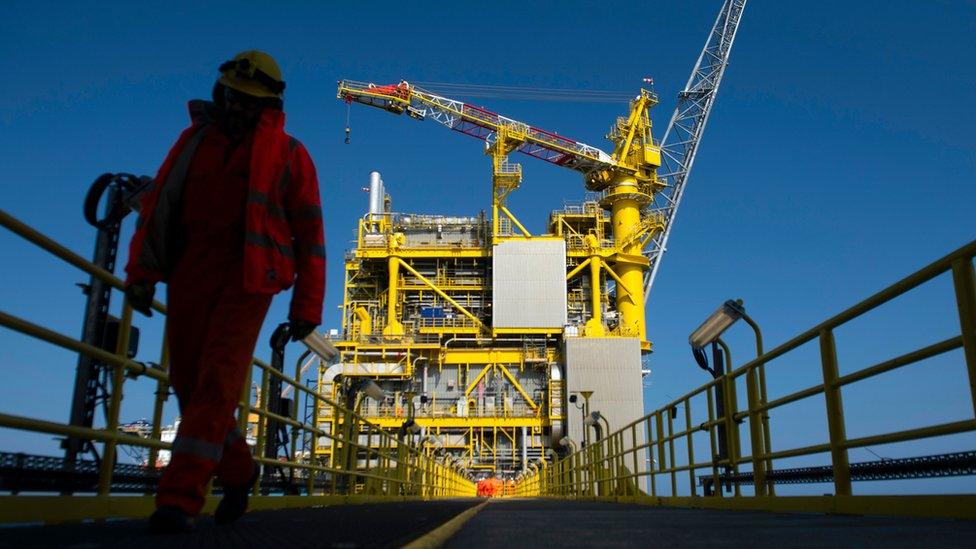
Successful applicants to drill for new oil and gas will be announced later this year
Parkmead was looking for industrial partners to share the risk, as is common, known as a farm-out. And "multiple parties" were interested. But there were too many concerns over the longevity of nearby infrastructure.
"In particular, industry concerns were highlighted over the recent numerous fiscal changes which has led to a large increase in effective taxation. Such an increase materially damages project economics, undermining the usual risk-reward equation associated with making major offshore oil and gas field investment decisions.
"These factors, combined with a lack of public and political support for new oil projects, have resulted in a very cautious and conditional approach from industry during these partnering discussions."
This was an unusually open explanation of why a North Sea driller was not going to do progress a project, along with a statement to investors that the company is taking a £33m hit, as it walks away from the Perth licences.
Gas over oil
It illustrates that there's a lot working against the future of the offshore oil and gas industry in the UK, and the prospect of an incoming Labour government is just one aspect of that.
Parkmead is not against further acquisitions, but its financial rationale is that it has £150m of losses on its books that can be used to offset tax. That makes it attractive to take on assets from those firms which would otherwise face a 75% tax on profits.
And with that background, it is pressing ahead with drilling on the more promising Skerryvore field, also in the central North Sea.
There is further evidence of value in the North Sea basin for hydrocarbons, with the sale of another Aberdeen-based driller, Neptune, to the Milan-based ENI oil giant. With assets spread widely but mainly in the UK and Norway, the transaction is worth around $5bn (£3.9bn).
The logic for this deal seems to be ENI's drive towards net zero by 2030. Neptune's assets are big on gas, including the large Cygnus field, and the shift from oil to gas helps reduce the new owner's carbon intensity.

Barney Crockett disagrees with the Labour party's stance on oil and gas
But the politics of this, according to Labour policy, is to go harder and faster towards slowing the flow of oil and gas from UK waters.
It sets up a dividing line between Labour and Tory, in which Sir Keir Starmer's compromise with the industry is to let Conservative ministers licence as much as they want before the next Westminster election - and that could be as many as a hundred projects - while Labour promises not to reverse those decisions.
The SNP tends towards the Labour position on licensing, but with wiggle room to allow some drilling if it can be mitigated. Under current constitutional arrangements, it won't have the powers to decide, as these lie with Westminster and its agency, the North Sea Transition Authority.
Labour's position would make the energy transition one of its biggest commitments and challenges, if it wins the election next year.
It risks a rush, and possibly haste, to grab licences and get to work, when - as Parkmead noted - there are constraints on finance and personnel.
The policy risks pleasing nobody, as the campaign to "keep it in the ground" sees progress in making it non-viable to keep drilling, and as the Scottish Labour party has to defend its transition plan to those industry workers. A sign of the frustration came from veteran Labour councillor and Aberdeen lord provost, Barney Crockett, who quit the party in disgust.
Carbon footprint
The industry has been campaigning hard to make the case for energy security. Following Russia's invasion of Ukraine and sanctions against Russia, with energy prices soaring last year and now falling back, the case for reducing dependence on imported energy has had a stronger pull.
Imports come with a bigger carbon footprint than natural gas piped from UK fields, particularly where they are transported as liquified natural gas.
Prices are no less volatile from domestic production, however. They continue to be set in international markets, and the UK contribution has only a marginal impact. But there is an advantage to domestic production in limiting the bill on foreign exchange. Last year, the import bill doubled to £117bn.
Meanwhile, it's seen as likely that the wind-down of the industry globally will leave production increasingly in the hands of those countries which are doing least to limit environmental damage and whose track record as responsible and reliable trading partners is far from ideal.
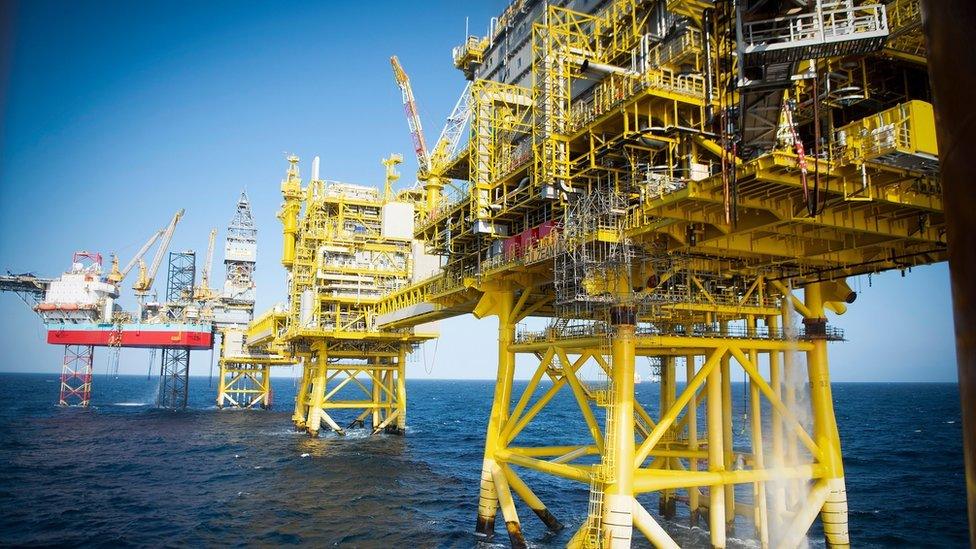
Offshore Energy UK, representing the sector, points to an accelerated decline for UK output if British governments push to put their own production at a disadvantage, either through higher tax or through licence constraints.
Big old fields are depleting. Last year, the industry was on course for a rapid acceleration of its decommissioning of equipment, more than doubling the number of jackets and topsides being scrapped, 330 km (205 miles) of pipelines shut down, a rise from 124 to 196 wells decommissioned, and more than trebling the tonnage of subsea equipment removed, to more than 1,100 tonnes.
That constrains the opportunity to use such assets for exploiting further fields, as Parkmead noted about its plans for Perth. Maintaining the flow requires new fields to be brought onstream and newer ones discovered. Only 12 recently-opened gas fields account for nearly a third of the UK's gas output.
"The UK's oil and gas fields are in natural long-term decline. UK oil and gas production will never increase and new developments are needed simply to minimise that decline," says OEUK. "UK oil and gas resources occur in multiple small reservoirs which become depleted, so constant investment is needed to develop new sources to replace those are no longer viable. This 'churn' is the only way to maintain production.
"Without such investment, UK oil and gas output would fall around 80% by 2033. This would make the UK even more dependent on imports and increase the 'energy gap' - meaning the difference between what we produce and what we consume."
The industry grouping says that faster decline in production would be at a rate of 15% per year, whereas a scenario with sustained investment would limit it to 8% annual decline.
Making it fair
So here's the dilemma. International agreements, and particularly the COP21 Paris summit in 2015, point to a pressing need to stop developing new oil and gas assets. Exploiting the resources already discovered and in production would itself push greenhouse gases beyond the agreed international limits.
The move to renewable energy will take time, and until the capacity is there to generate, to transmit and to connect the shift to green electricity from oil-fuelled transport and gas-fuelled heating, the demand for oil and gas is not going away.
Cutting back on supply doesn't, in itself, cut demand. It could help to do so if it pushes up prices, making it more financially attractive to make that shift. But using price as the mechanism is politically difficult.
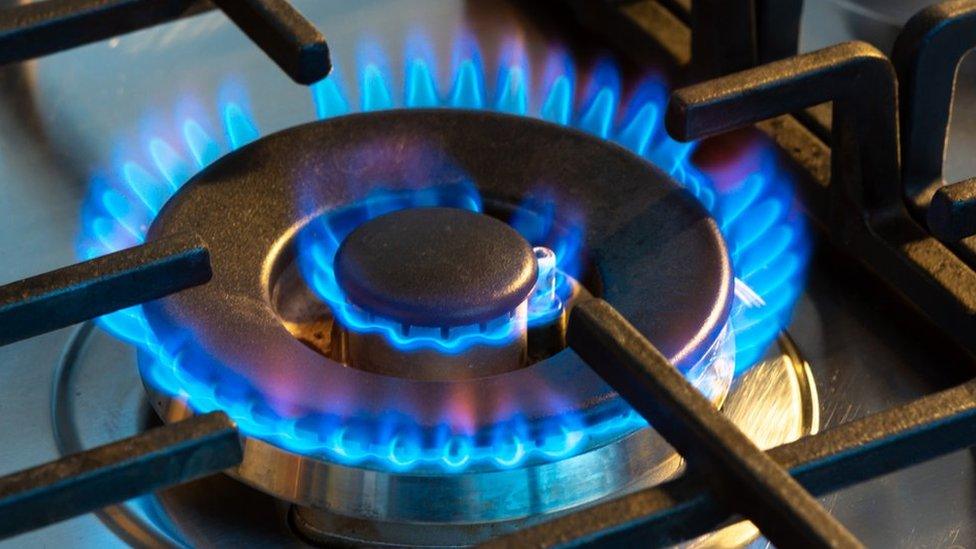
Governments are constrained in how much they can commit to the enormous capital costs required to replace the UK's 24 million gas boilers heating British homes. With higher prices, those least able to pay the capital costs will be those left with the expensive old boilers. Those living in the poorest areas are most likely to be the ones left with the petrol-guzzling cars, furthest from reliable charging points.
Asked how energy bills are supposed to be falling by 2030, as it claims they will, Labour's answer is that renewable energy is already cheaper than gas-fired power stations.
But that's for turbines already installed, and the comparison is with gas at recent high prices. For decades to come, bills are going to be paying off the capital costs of many more turbines required, and the wiring to get offshore wind power to customers - itself a logistical and political challenge. Supply chains are stretched, and the industry warns that costs are rising.
As we've found in the past year, soaring energy bills only serve to distract people from the Great Energy Transition, while they struggle to get through the current crisis for the household budget. So sequencing is important, to reduce price volatility.
The challenge of doing this in a fair, equitable way is a huge one, and choking off supply without a simultaneous path to the transition risks making it worse.
- Published21 June 2023

- Published19 June 2023
